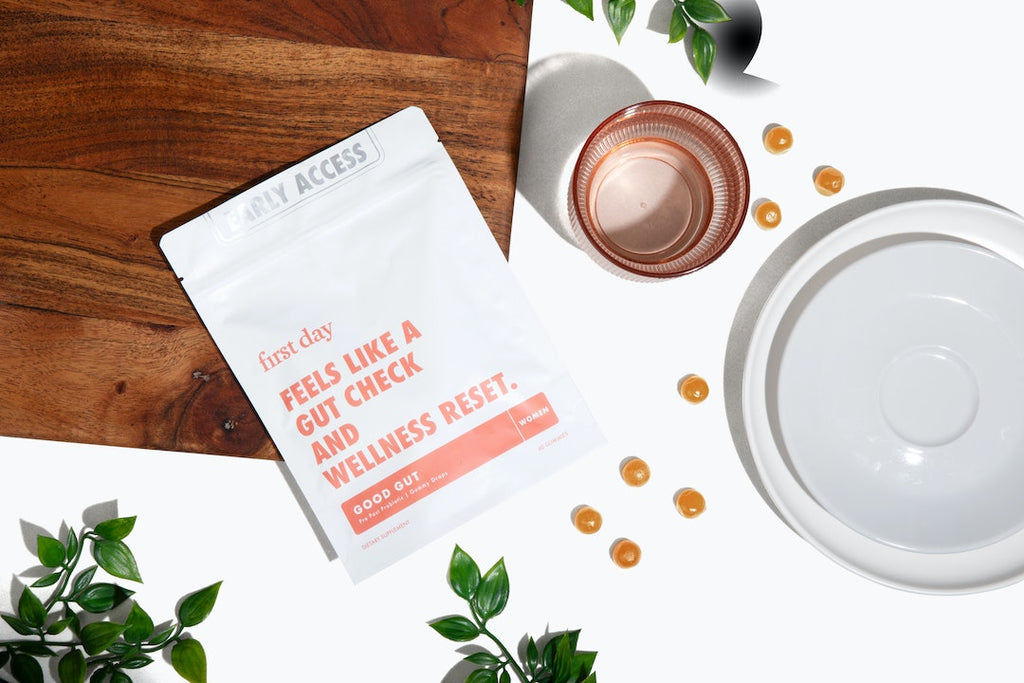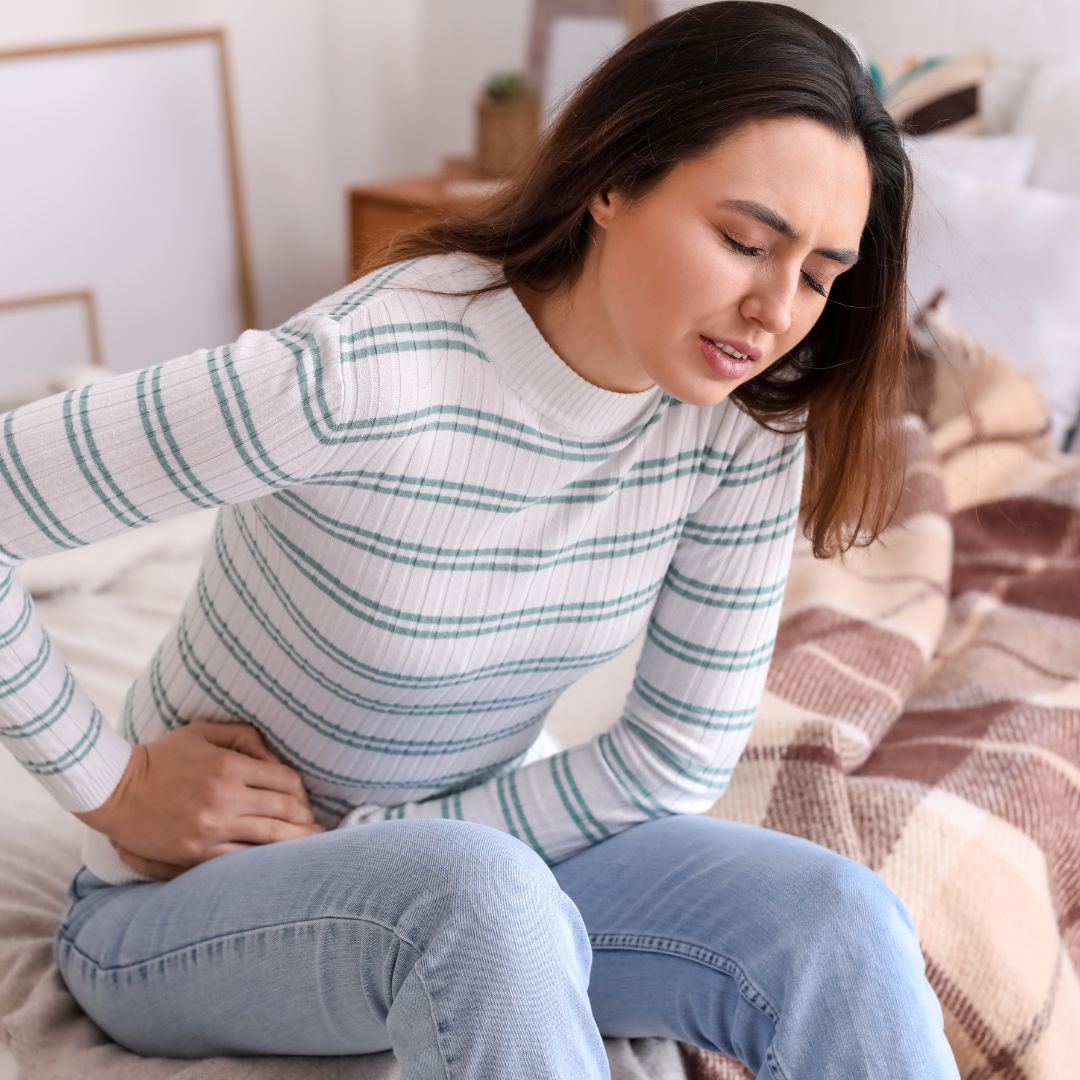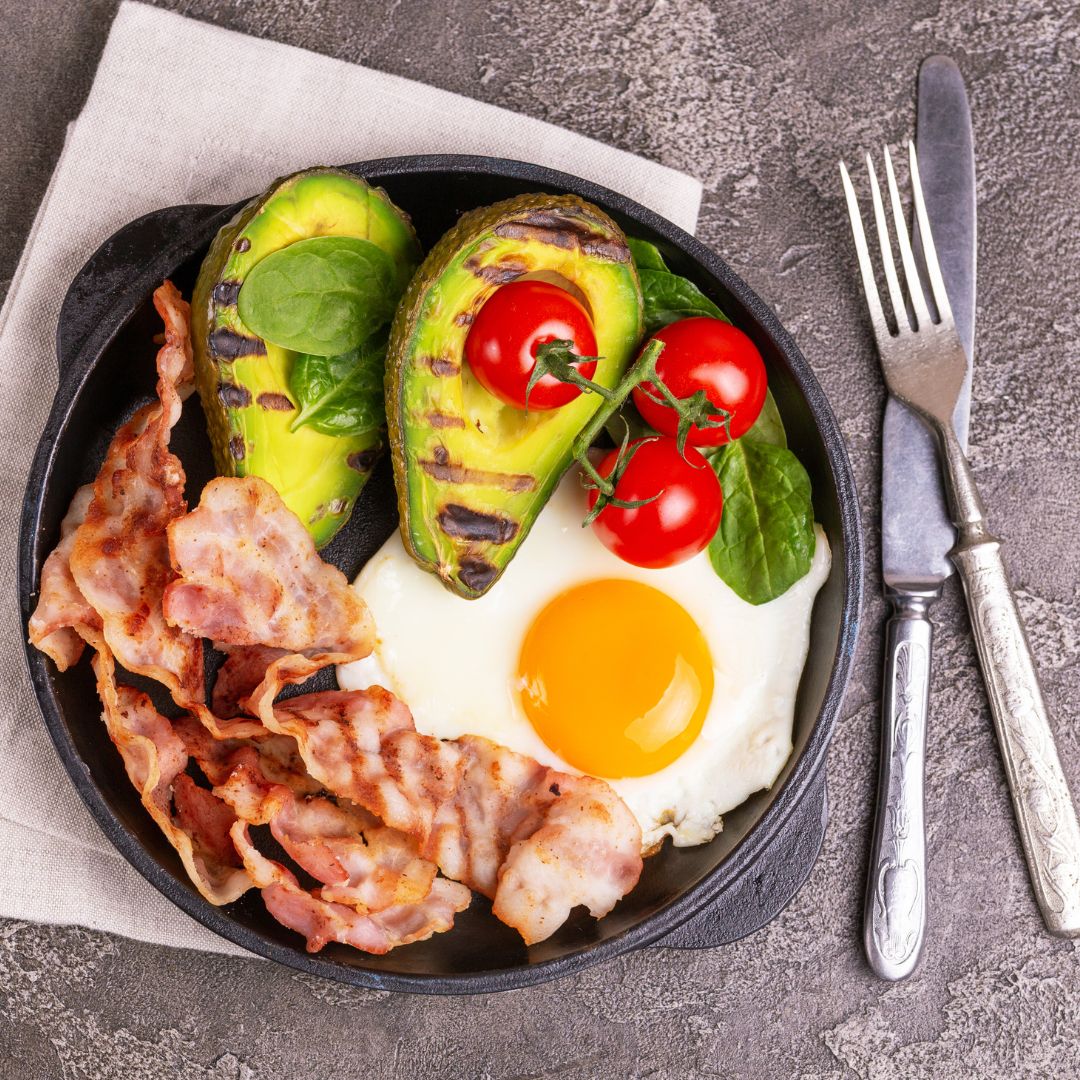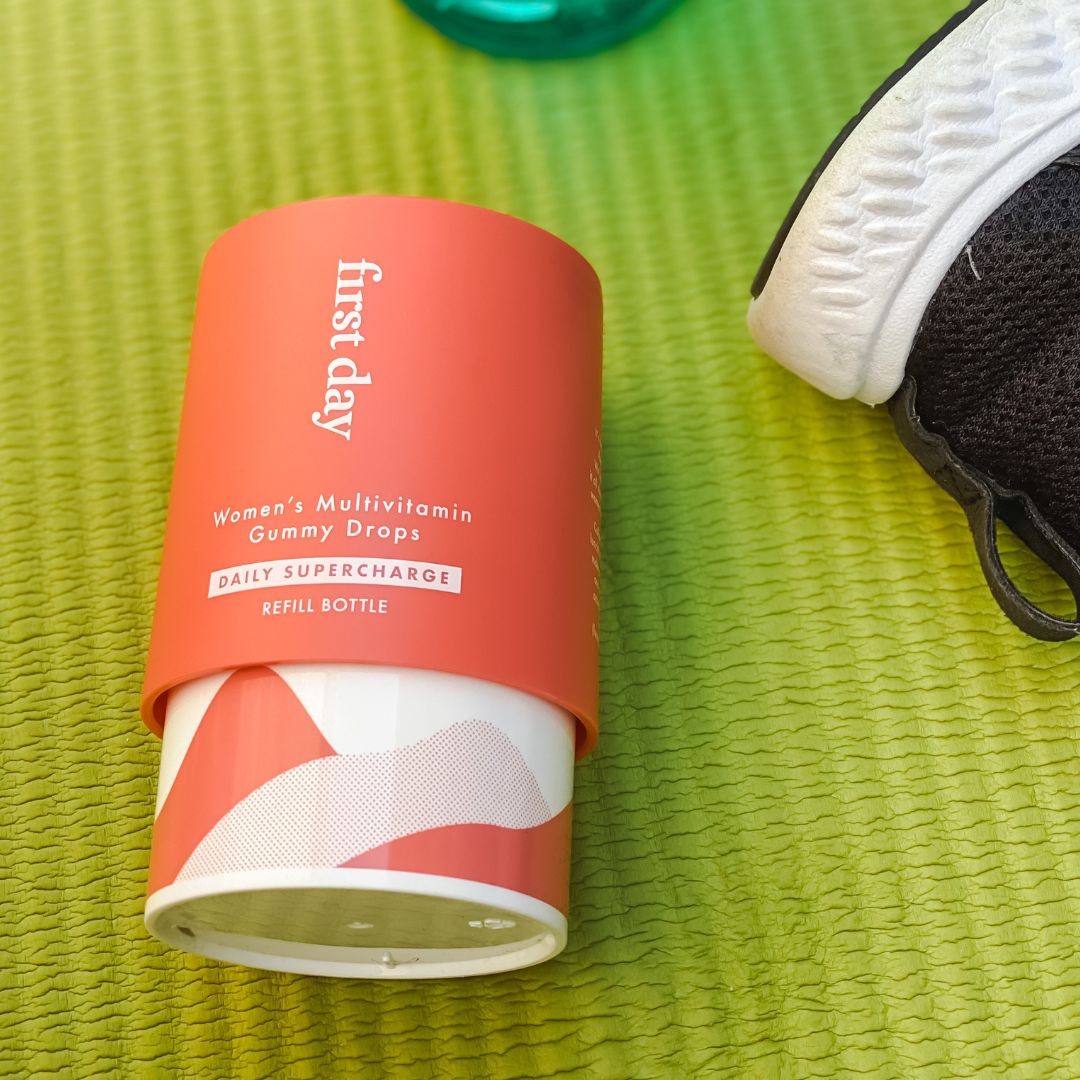Probiotics are live bacteria that are good for your gut health, especially your digestive system. They are not the bacteria that cause diseases, but the good kind that helps keep your gut happy.
Imagine a bustling city within you, where these microscopic critters work tirelessly to keep things in balance. For us ladies, this balance is crucial. Not only does it influence our digestive health, but it also connects deeply with our immune system, mood, energy levels, and even the clarity of our skin. Let's face it – when our inner ecosystem is off, everything feels a bit... blah.
That's why questions like "Should a woman take a probiotic daily?" are making rounds in health circles. The idea isn't just about gut health; it's about empowering yourself to feel amazing every single day.
In this post, we're diving deep into the world of these friendly bacteria to understand their power, discover how maintaining a thriving gut microbiome is particularly ace for women, and find out if daily probiotics are the secret ingredient to our overall well-being.
So, should a woman take a probiotic daily? Let's find out!
Understanding Women's Microbiome
Let's get up close and personal with the unique qualities that make a woman's gut biota something special. You see, the gut microbiome is as distinctive as a fingerprint, and there are fascinating differences when we peek into the world of women's versus men's gut health.
For example, according to Professor Thackray, a faculty member at the Center for Microbiome Innovation at UC San Diego, female microbiomes contain more diverse bacteria than men's, which is a good thing. This means a female's gut ecosystem is better equipped to handle the various foods and stresses of daily life.
Also, it turns out that the rollercoaster of hormonal changes a woman experiences isn't just a solo ride for her body, it can take her gut bacteria along for the journey too. From the monthly menstrual cycle shifts to the transformative stages of pregnancy and the transition into menopause, hormones like estrogen and progesterone aren't just choreographing reproductive functions; they're also affecting gut health.
According to a study from the World Journal of Gastroenterology, shifts in hormone levels can lead to changes in gut microbiota, which in some cases, might contribute to discomforts like bloating or mood swings. It's all about the intricate interplay between hormones and our bacterial buddies—a tango that can impact our physical and mental well-being in significant ways.
Benefits of Probiotics for Women
Alright, let's get into the good stuff – how probiotics can be total game-changers for us women.
A Little Digestive Harmony, Anyone?
First up is the digestive health arena, where probiotics are like the behind-the-scenes crew that keeps the gut's daily show running smoothly. Consuming probiotics regularly can lead to a decrease in the symptoms of irritable bowel syndrome (IBS), which, according to the International Foundation for Gastrointestinal Disorders, affects between 25 to 45 million people in the United States. That's a lot of happier tummies. And let's not forget that a well-balanced intestinal flora can also help manage lactose intolerance and promote regularity.
Cranking Up Your Immune Defenses
Moving on to the immune system – our internal defense department – probiotics can be quite the allies. By promoting the growth of beneficial bacteria, probiotics crowd out pathogenic bacteria and may even increase the production of natural antibodies by the intestinal immune cells. This could explain why probiotics are showing promising results in studies for various conditions, including food allergies and even skin disorders like eczema.
Could Probiotics Be Your Weight Management Buddies?
Hey, when it comes to managing weight, probiotics could be a big help. It's not just about diet and exercise – your gut bacteria play a role too. Some probiotics like Lactobacillus rhamnosus and Lactobacillus gasseri might even help with weight loss by affecting how your body processes food and stores fat.
If you've got an imbalance in your gut bacteria, it could mess with how your body handles nutrients and make you crave high-calorie foods. Probiotics could help balance things out and support your body's natural metabolism.
But here's the thing: taking probiotics daily could be a small piece of the weight management puzzle. It's not a quick fix, but it's part of a healthy lifestyle. Just make sure to talk to your healthcare provider before adding any probiotics to your routine – they can give you personalized advice based on your health needs.
Types of Probiotics
Remember, not all probiotics are created equal, and the right strains can make all the difference for your health.
Meet the Lactobacillus All-Stars
When it comes to Lactobacillus strains, think of them as your personal health coaches inside your gut. Known for supporting the digestive system and boosting immune defense, these Lactobacillus strains are like wellness gurus for your body. Lactobacillus paracasei and Lactobacillus reuteri, specifically, are two standout members of this group. They have been recognized for their role in preventing and treating vaginal infections, an important consideration for every woman. But these strains aren't just about vaginal health; they've also shown prowess in improving digestive problems and even helping with weight management.
The Bifidobacterium Brigade: Your Gut's Guardians
Now, let's give a warm welcome to the Bifidobacterium family. These strains excel in protecting our digestive tracts and helping to ease the symptoms of a leaky gut. Bifidobacterium longum, for example, is a peacekeeper, reducing gastrointestinal discomfort and supporting a healthy gut environment.
Daily vs. Occasional Probiotic Use
So, you're probably wondering, "Should a woman take a probiotic daily?" Great question! Let's chew over the benefits and drawbacks of daily probiotic usage, and then explore some alternative routes to keep your gut flora flourishing without necessarily taking a supplement every day.
The Daily Drill: Balancing the Benefits and Drawbacks
Consistency can be king when it comes to establishing a balanced gut microbiome. Regular intake of probiotics is said to reinforce the ranks of beneficial bacteria, potentially leading to more stable and long-lasting improvements in gut health. By taking a probiotic daily, you're giving your body a steady stream of these friendly microbes, which might help maintain digestive harmony and overall wellness.
Coupled with prebiotics supplements or dietary fibers, daily probiotics could also enhance the growth of beneficial bacteria and further support your digestive health.

For example, our new Womens Good Gut gummies are your tasty 3-in-1 pre, post, and probiotic solution! These delicious bites are designed to keep your gut, oral health, and skin in check, while also maintaining your vaginal flora. Plus, they're a real time-saver - no more trying to remember a handful of different supplements! And with ingredients that are clinically studied for effectiveness, you can trust that you're getting a quality product.
So, why wait? Start your journey to better health with our Women Good Gut gummies today!
Learn More About Our Womens Good Gut Today!
Taking a Break: Other Avenues to a Happy Gut
Alright, what if you're not keen on the idea of daily supplements? No sweat—there are other ways to foster a healthy microbiome. A diet rich in prebiotics (found in foods like garlic, bananas, and onions) fuels those good bacteria naturally. Fermented foods—think Greek yogurt— are rich in probiotics too. But here's the thing, relying solely on food won’t cut it. Studies have shown that even though probiotic-rich diets are beneficial, they may not be enough to make a significant impact. That's where supplementary probiotics come in. Remember, it's always a good idea to consult with a healthcare provider to find the best approach for your unique body.
Incorporating Probiotics into Your Daily Routine
Integrating probiotics into your daily regimen is kind of like setting up a security system for your gut. If probiotics are your friendly neighborhood watch, taking them sporadically is like leaving your front door unlocked now and then; it just invites trouble. Namely, those troublemakers are harmful bacteria, just waiting for a chance to sneak in. Think about it: your microbiome is influenced by all sorts of stuff — from what you eat to how much you stress, even to the number of jumping jacks you fit in before breakfast. Plus, environmental factors like pollution can add to the chaos.
Studies show that if you skip days, you're basically giving these bad bacteria VIP passes to come and party where they shouldn't, seriously messing with the balance of your gut flora. How does that translate to you? Less overall oomph in how you feel and function. Remember, regularly inviting in those good bacteria with a steady probiotic routine means they're better equipped to keep the peace, fend off unwanted guests, and support a happy gut. It's about creating a microbiome that's not just bustling but bustling with the right kind of locals — the ones that have your back.
Wrapping Up: Should a Woman Take a Probiotic Daily?
So, "Should a woman take a probiotic daily?" At the end of the day, it's a personal journey. Your lifestyle, diet, and specific health needs are the real MVPs in this decision. Remember that you've got options, be it the daily probiotic train or just tweaking your diet to give your gut that extra love. Listen to your body, and let your healthcare provider be your compass. You're in charge of your health – own it!
Curious about balancing your gut or managing health the right way? Discover whether our Womens Good Gut is right for you and how it could complement your daily wellness routine.
Learn More About Our Womens Good Gut Today!
References:
Like A Lot of Things, Women’s Gut Microbiomes Appear to Mature Earlier than Men’s. (n.d.). UC San Diego Health. Retrieved February 15, 2024, from https://health.ucsd.edu/news/press-releases/2019-05-14-womens-gut-microbiomes-mature-earlier-than-mens/#:~:text=Greater%20microbial%20diversity%20in%20the
Mulak, A. (2014). Sex hormones in the modulation of irritable bowel syndrome. World Journal of Gastroenterology, 20(10), 2433. https://doi.org/10.3748/wjg.v20.i10.2433
Satish Kumar, L., Pugalenthi, L. S., Ahmad, M., Reddy, S., Barkhane, Z., & Elmadi, J. (2022). Probiotics in Irritable Bowel Syndrome: a Review of Their Therapeutic Role. Cureus, 14(4). https://doi.org/10.7759/cureus.24240
IBS Facts and Statistics - About IBS. (2021, March 8). https://aboutibs.org/what-is-ibs/facts-about-ibs/#:~:text=IBS%20Population%20Statistics&text=IBS%20affects%20between%2025%20and
Ahn, S.-I., Kim, M. S., Park, D. G., Han, B. K., & Kim, Y. J. (2023). Effects of probiotics administration on lactose intolerance in adulthood: A meta-analysis. Journal of Dairy Science, 106(7), 4489–4501. https://doi.org/10.3168/jds.2022-22762
Saarela, M., Mogensen, G., Fondén, R., Mättö, J., & Mattila-Sandholm, T. (2000). Probiotic bacteria: safety, functional and technological properties. Journal of Biotechnology, 84(3), 197–215. https://doi.org/10.1016/s0168-1656(00)00375-8
Mazziotta, C., Tognon, M., Martini, F., Torreggiani, E., & Rotondo, J. C. (2023). Probiotics Mechanism of Action on Immune Cells and Beneficial Effects on Human Health. Cells, 12(1), 184. https://doi.org/10.3390/cells12010184
Gu, S., Yang, D., Liu, C., & Xue, W. (2023). The role of probiotics in prevention and treatment of food allergy. Food Science and Human Wellness, 12(3), 681–690. https://doi.org/10.1016/j.fshw.2022.09.001
Gao, T., Wang, X., Li, Y., & Ren, F. (2023). The Role of Probiotics in Skin Health and Related Gut–Skin Axis: A Review. Nutrients, 15(14), 3123–3123. https://doi.org/10.3390/nu15143123
Fryer, C. (2024, January 9). Best Probiotic for Women Weight Loss: Optimize Gut Health for Effective Results. Https://Maoi.org/. https://maoi.org/health/best-probiotic-for-women-weight-loss/#:~:text=What%20specific%20strains%20of%20probiotics
Alcock, J., Maley, C. C., & Aktipis, C. A. (2014). Is eating behavior manipulated by the gastrointestinal microbiota? Evolutionary pressures and potential mechanisms. BioEssays, 36(10), 940–949. https://doi.org/10.1002/bies.201400071
Frolova, M., Yudin, S., Makarov, V., Glazunova, O., Alikina, O., Markelova, N., Kolzhetsov, N., Dzhelyadin, T., Shcherbakova, V., Trubitsyn, V., Panyukov, V., Zaitsev, A., Kiselev, S., Shavkunov, K., & Ozoline, O. (2021). Lacticaseibacillus paracasei: Occurrence in the Human Gut Microbiota and K-Mer-Based Assessment of Intraspecies Diversity. Life, 11(11), 1246. https://doi.org/10.3390/life11111246
Mei, Z., & Li, D. (2022). The role of probiotics in vaginal health. Frontiers in Cellular and Infection Microbiology, 12. https://doi.org/10.3389/fcimb.2022.963868
O’Callaghan, A., & van Sinderen, D. (2016). Bifidobacteria and Their Role as Members of the Human Gut Microbiota. Frontiers in Microbiology, 7(925). https://doi.org/10.3389/fmicb.2016.00925
Mills, S., Yang, B., Smith, G. J., Stanton, C., & Ross, R. P. (2023). Efficacy of Bifidobacterium longum alone or in multi-strain probiotic formulations during early life and beyond. Gut Microbes, 15(1). https://doi.org/10.1080/19490976.2023.2186098
Articles of Significant Interest in This Issue. (2019). Journal of Bacteriology, 201(4). https://doi.org/10.1128/jb.00753-18
Conlon, M., & Bird, A. (2014). The Impact of Diet and Lifestyle on Gut Microbiota and Human Health. Nutrients, 7(1), 17–44. https://doi.org/10.3390/nu7010017
Madison, A., & Kiecolt-Glaser, J. K. (2019). Stress, depression, diet, and the gut microbiota: human–bacteria interactions at the core of psychoneuroimmunology and nutrition. Current Opinion in Behavioral Sciences, 28(3), 105–110. https://doi.org/10.1016/j.cobeha.2019.01.011
Liu, Z., Liu, W., Ran, C., Hu, J., & Zhou, Z. (2016). Abrupt suspension of probiotics administration may increase host pathogen susceptibility by inducing gut dysbiosis. Scientific Reports, 6(1). https://doi.org/10.1038/srep23214






